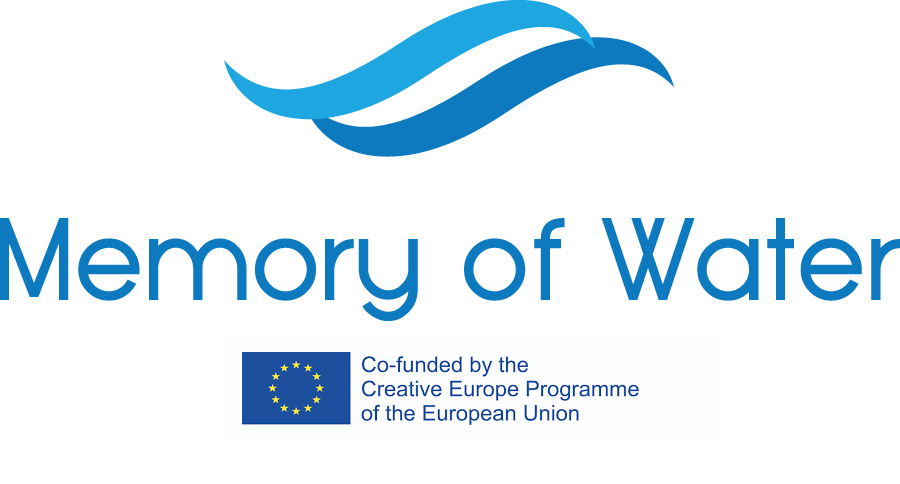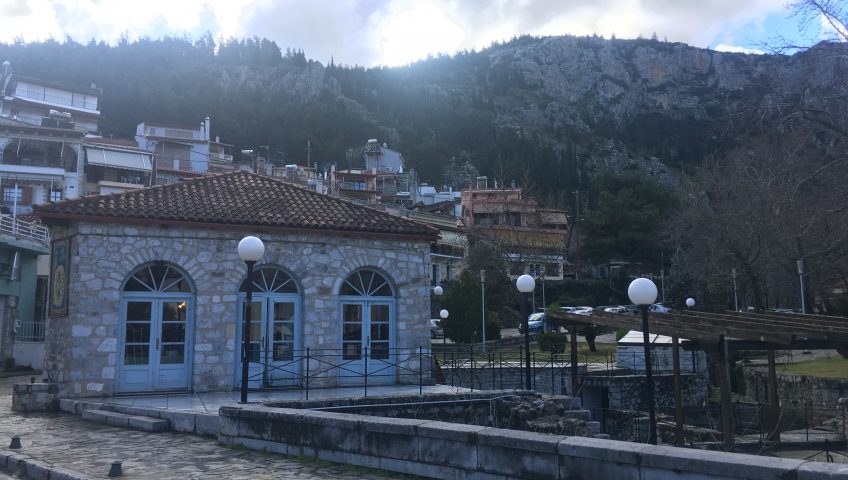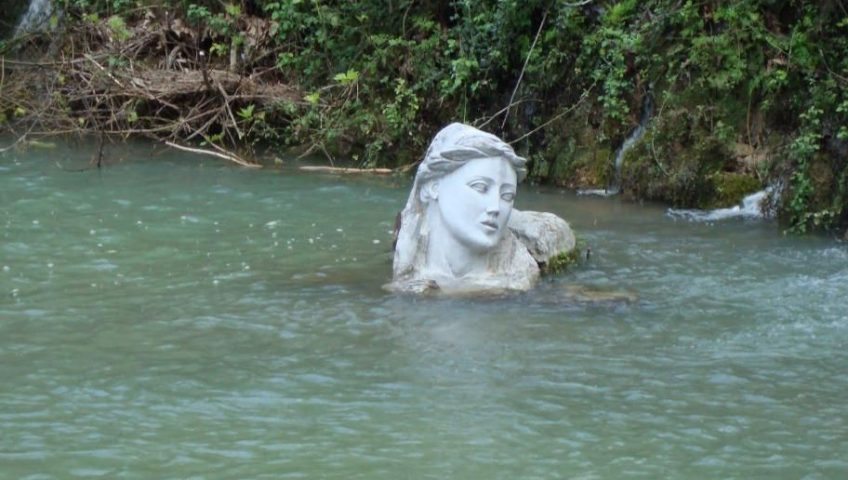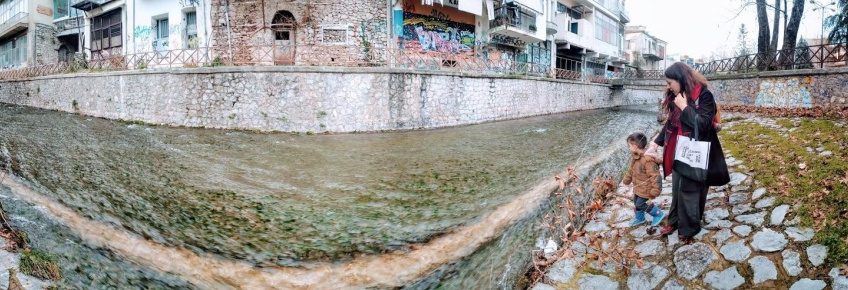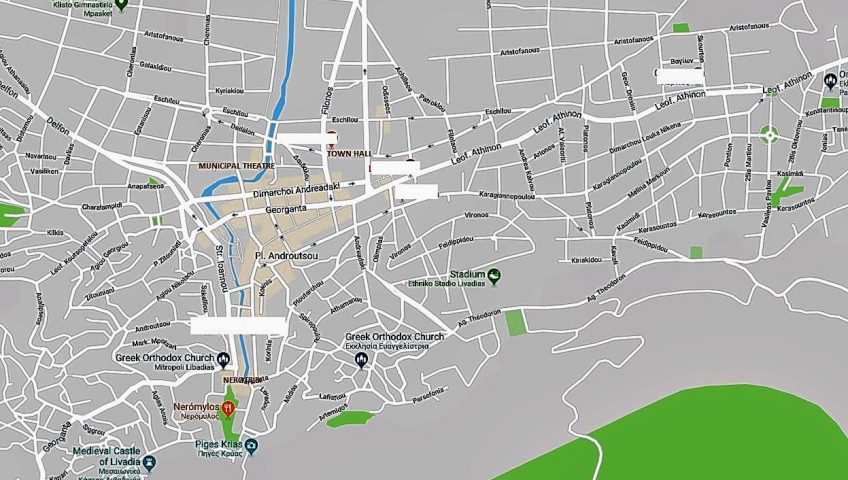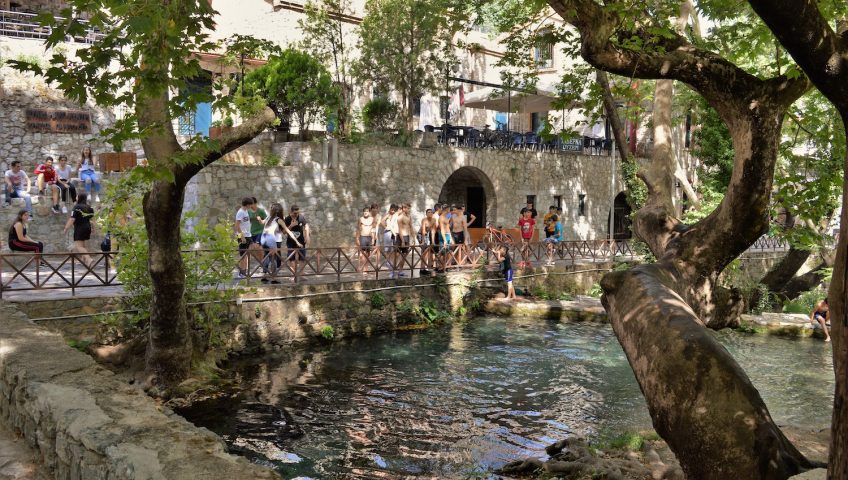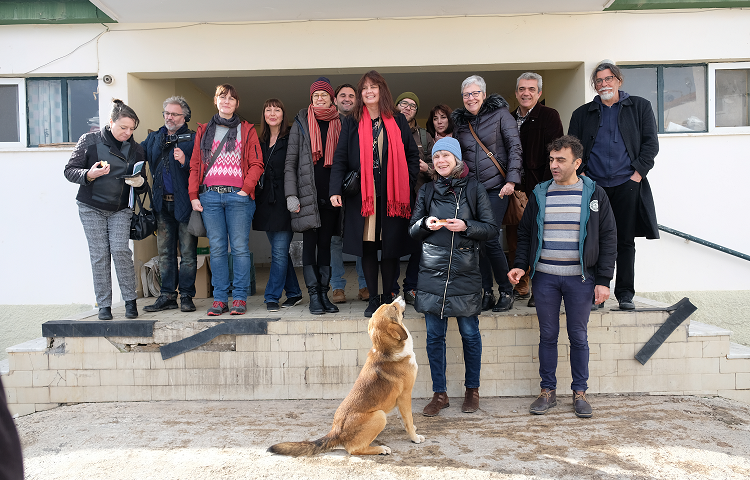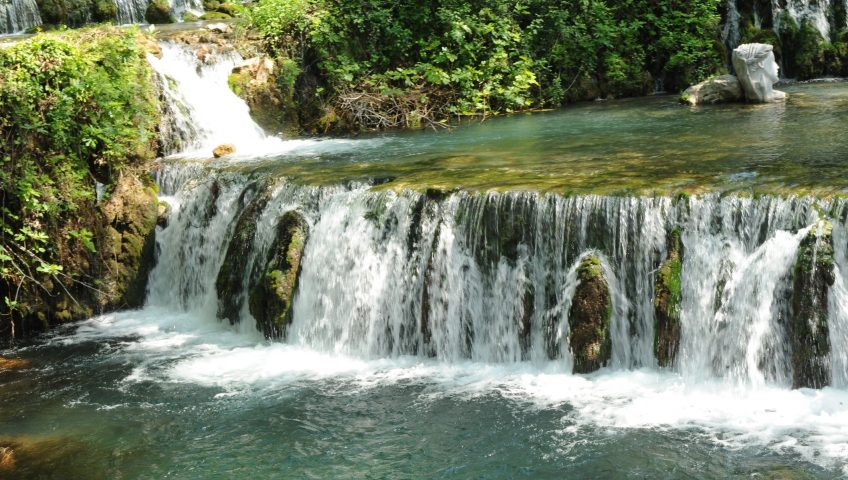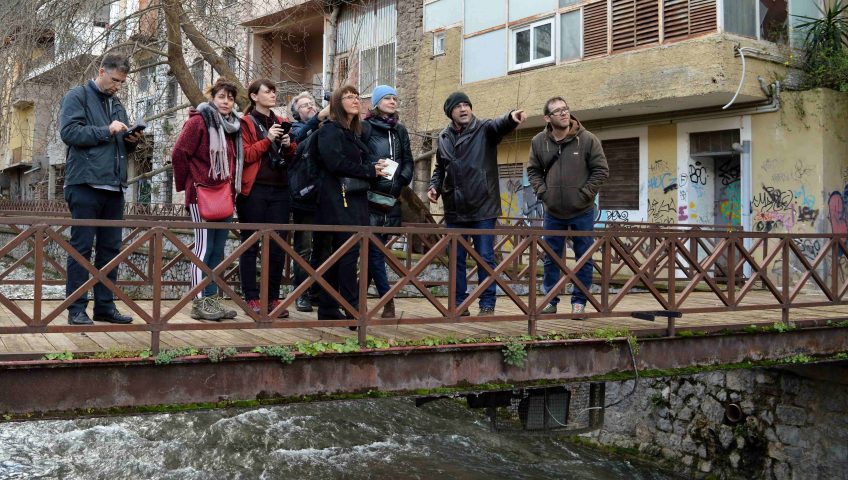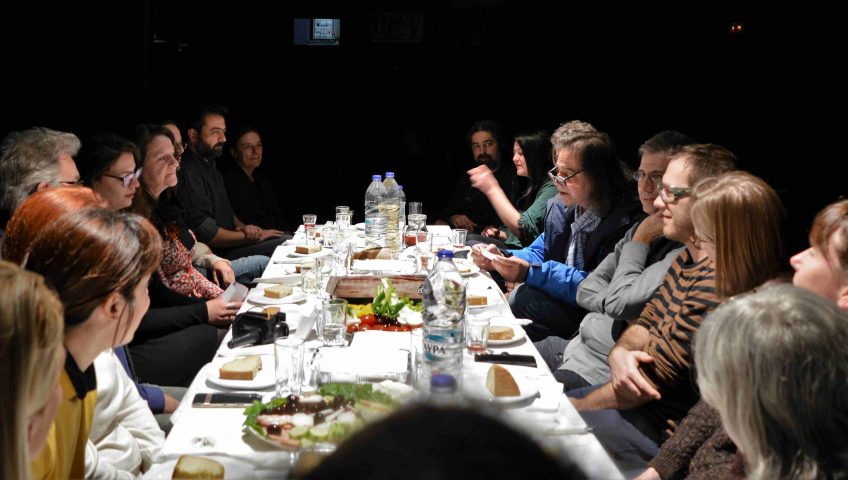
Reflection: Blind dates
It was our pleasure to go on nine blind dates during our first day in Levadia! This was a fun way, proposed by artist and curator Rafika Chawishe, for the artists and local community groups to break the ice. Not only did we meet citizens from all walks of life through this process but we learned that some of the groups had taken the theme Memory of Water and applied it to their own activities before our arrival. This was a special surprise for the artists who heard from clients of EPAPSY and EKEPSYE (two organisations providing mental health supports) about the healing power of the river and what emotions the river conjured for them.
Later that evening we had another blind date – this time in three languages! – when we were invited to a tea party by newcomer citizens. KEDHL is a municipal organisation which provides an organic integration programme for refugees and asylum seekers. Newcomer citizens are welcomed by the Mayor on arrival, told they are safe and welcome, and hosted in apartments in the city. These families generously opened their homes to us and gave us advice on what to see and do in Levadia.
– Mary Conlon (Ireland)
